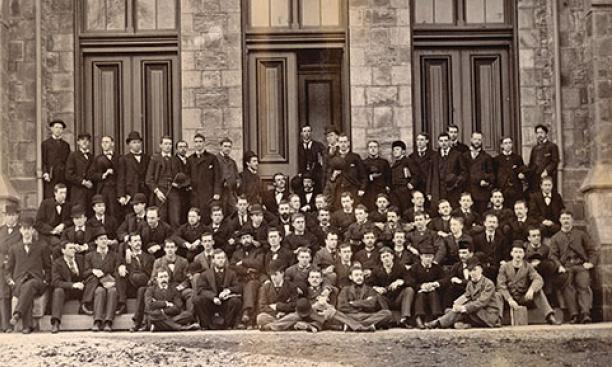

For most of the University’s history, to be a Princetonian was to be a white male. Black seminarian Irwin W.L. Roundtree earned a master’s degree from Princeton in 1895, but not until 1947 did an African American — John L. Howard, assigned to Princeton by the U.S. Navy — receive an undergraduate degree.
President Woodrow Wilson 1879 encapsulated Princeton’s position when he wrote, “while there is nothing in the law of the University to prevent a negro’s entering, the whole temper and tradition of the place are such that no negro has ever applied for admission, and it seems extremely unlikely that the question will ever assume a practical form.” Poor prophet though he was, his characterization of Princeton was accurate enough, shaped, perhaps, by an incident that captured national attention in his sophomore year.
In the fall of 1876, five juniors angrily quit the campus on finding a black man in their classroom — a student at the Princeton Theological Seminary, whose first black graduate, in 1829, was the abolitionist Theodore S. Wright and whose students were eligible to sit in on lectures taught by Princeton’s faculty.
Two African Americans had done so the year before without controversy, but, as the Princetonian reported, “a few spirits in the new Junior Class ... appear to have been a little more sensitive than their predecessors.” When they could not prevail on President James McCosh, the teacher of the course, to banish the seminarian, they returned home — most, according to The Atlanta Constitution, to Baltimore — though four soon would relent.
Neither newspaper condoned the walkout, noting that the black students, relegated to “seats in the rear of the room,” were all but invisible. But for some Princeton undergraduates, even this was difficult to swallow. In the words of the Princetonian, “If the intruder had busied himself with a broom or a feather-duster, they could doubtless have endured his presence, but to see him taking notes ‘just like white folks,’ was too much for their squeamish stomachs.”
John S. Weeren is founding director of Princeton Writes and a former assistant University archivist.
